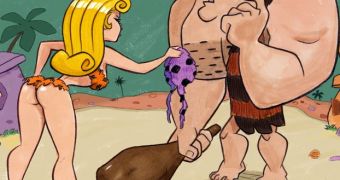Human behavior is driven by its basic instincts for food and sex and at a higher level for power (of any kind, from hierarchy to financial, political, sexual and so on). And based on these instincts, powerful reflexes can form, all of them unconscious. If unsuppressed, they would turn us into animals.
But now a team at Cardiff University and University College London (UCL) has discovered an area of the brain that helps us act like humans (even if we do not manage always to do it and some never). The brain's "supplementary motor regions" are active in inhibiting unconsciously-triggered actions which take place when we face familiar objects and situations (that would start unconscious reflexes). In fact, how do we rid of simply being governed by unconscious reflexes?
These brain parts had been known to be involved in heading behavior and the new study shows that these nuclei are also linked to overruling 'motor plans', potential actions caused by visual cues.
It's hard to connect a brain area to a specific function. Strokes can give clues, but they are often too large, spanning over several areas, so that the connections are difficult to establish. The team got a unique opportunity when they investigated two extremely rare patients who had suffered from small strokes in the supplementary motor regions of the brain's frontal lobes.
These persons found it difficult to voluntarily control movement and presented alien limb syndrome, a neurological condition where a person's arm is out of control, grasping any objects found within reach, against the person's will, but also some syndroms found in the Parkinson's disease.
"We are constantly encountering familiar people and objects which normally trigger action plans in the brain unconsciously. This activation can be very quickly suppressed again, presumably so that we are not forever making actions triggered by what we happen to see. This all happens 'behind the scenes' without our conscious knowledge. In the patients we studied, however, we found no suppression. We believe automatic triggers and how they are suppressed are critical to understanding how we overcome habits, and make choices between alternative actions." said Dr Petroc Sumner, School of Psychology.
"This research strongly indicates that part of the voluntary control of our actions actually involves overruling automatically activated motor plans." said Professor Masud Husain, UCL Institute of Neurology and Institute of Cognitive Neuroscience.

 14 DAY TRIAL //
14 DAY TRIAL //